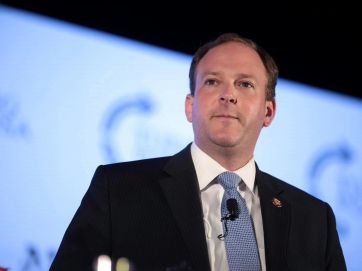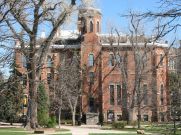February 1, 2011
Michael S. Roth
President
Wesleyan University
Middletown CT 06459
Dear President Roth:
We support the courageous Wesleyan students who conducted an Affirmative Action Bake Sale on your campus on October 26, 2010. In the sale, the price charged for baked items depended on the race and ethnicity of the person purchasing them.
As the students explained it, the bake sale was intended to replicate in a way that is easily understandable the preferences given to “underrepresented minorities” in student admissions and faculty hiring at colleges and universities all across America. These preferences are inherently discriminatory and unfair. To give preference to some on the basis of race and ethnicity is necessarily to discriminate against others on the basis of race and ethnicity.
Thanks to the indefatigable efforts of Ward Connerly, among others, to date the good people of California, Washington State, Michigan, Nebraska and Arizona have passed ballot initiatives that legally prohibit the racial and ethnic discrimination that the Wesleyan bake sale was intended to illustrate – and that the misleading euphemism, “Affirmative Action,” is often used to conceal.
In addition, we are appalled by the attacks from students and faculty on the bake sale as somehow inappropriate on a college campus because some students and faculty were offended by it. We find especially egregious the claim of one Wesleyan professor, Claire Potter, in an email dated October 29, 2010, that because “students of color and their allies” were hurt and offended by the bake sale, the bake sale was ”racist,” and presumably should not have been allowed to occur.
We disagree. There is no moral right not to be offended by the expression of personal or political opinions. Being offended is a part of life, and it is also an inevitable concomitant of being liberally educated, a process in which one’s ideas and beliefs are challenged by others, sometimes publicly and strongly, as was the case in the bake sale. In the Report of the Committee on Freedom of Expression at Yale University, issued in January 1975, the principal author, the eminent historian C. Vann Woodward, wrote:
“The purpose of a university is not to make its members feel secure, content, or good about themselves, but to provide a forum for the new, the provocative, the disturbing, the unorthodox, even the shocking. . . . It is a place where the unthinkable can be thought, the unmentionable can be discussed and the unchallengeable can be challenged.”
Students in college whose beliefs are never challenged should request a refund.
To confer on students generally, or on students of a particular race or ethnicity, the prerogative to censor speech on campus they deem “hurtful” or “offensive” is to prevent the university from fulfilling its principal mission, namely, educating students by exposing them to as broad a spectrum of opinion on any given issue or subject as possible. Perhaps the Wesleyan faculty and administration should include in their celebration of “diversity” a commitment to intellectual diversity, in contrast to the purely cosmetic diversity that “affirmative action,” as an institutionalized form of reverse discrimination, is used by colleges and universities to achieve. Judging from the reaction to the bake sale, as reported in the student newspaper and elsewhere, on the whole issue of “affirmative action” there is precious little intellectual diversity at Wesleyan.
Sincerely,
Emanuel Andrade
Jay Bergman
William Dougherty
John Gordon
Steven Kron
John J. McNulty
Mark Mehlman
John Mendenhall
The above are all members of the Connecticut Association of Scholars, an affiliate of the National Association of Scholars, an organization in Princeton, New Jersey with a membership of more than 2,700, most of them professors, that supports reasoned scholarship, the disinterested pursuit of truth, and nondiscrimination in faculty hiring and student admissions.
P.S. Enclosed for your edification are two articles on the bake sale and also testimony concerning racial and ethnic preferences in higher education given in May 1999 before the United States Commission on Civil Rights by Roger Clegg, Vice President and General Counsel of the Center for Equal Opportunity and a former Deputy Assistant Attorney General in the Justice Department.
cc: Board of Trustees
Dean of Admission and Financial Aid
Human Resources Director
Vice-President for Institutional Partnerships and Chief Diversity Officer
Dean of Diversity and Student Engagement
The Wesleyan Argus













